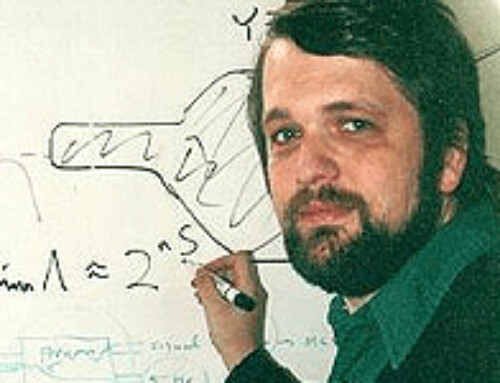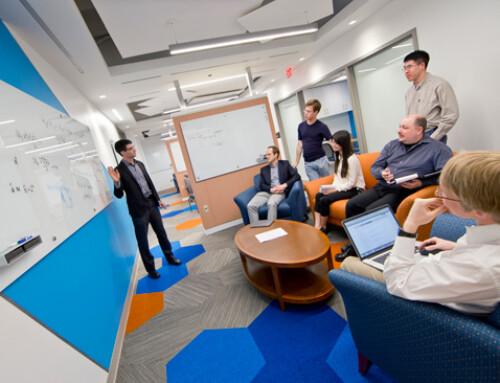I’m a senior software engineer at Knewton, a company that aims to personalize education through adaptive learning technology. Also, in my free time I write stories and design games to teach kids about computer science as DrTechniko. My How To Train Your Robot game, for example, lets kids “program” their parents to do tasks for them. It’s intuitive and fun for kids because they get to “command” their parents. At the same time the parents get a good workout by the end of the class.
But, why do I care about kids and computer science education?
- Computer science combines problem solving with practical outcomes for a society that is increasingly high-tech.
- Creative problem solving needs to become the no.1 skill that schools teach today. Information is already available everywhere. Kids need to know how to put this together and solve real, challenging problems.
- We need to feel comfortable with technology and control it. If we don’t teach this culture to our five-year-olds, then we can’t grow as a society and civilization. We have to “learn to drive a car and let go of the horse”. The lawyer of 2034 needs to know how to program. Everything around her will be programmable.
All of us working to revolutionize education have such goals in mind and we want to break the current educational stereotypes, because they won’t get us there. Instead, every kid becomes a “copy” coming out of a factory-like assembly line called the school. Only recently have we began to develop the tools that allow students to personalize the way they learn new things. The next step is to give kids the tools they need to learn how to learn the things they need in order to unleash their creative potential.
For more insights and answers, I encourage you all to watch this short film about the future of education and how technology can help:
Some of the names that appear in the video are:
- Seth Godin: Teacher + Artist
- Sugata Mitra: Slumdog Professor
- Stephen Heppell: trying to mend the world… with Learning
- Jose Ferreira: Founder + CEO (Knewton)
- Lois Mbugua: Mentor + Leader (Ericsson)
- Margaret Kositany: Mentor to young girls
- Daphne Koller: Coursera Co-Founder and Co-CEO
I would love to see this community look for ways to distill complex concepts such as those behind quantum mechanics to simpler ones, so that a five-year-old can get them. Consider this your “homework” for the weekend. You are among the top problem-solvers in the world, after all.


